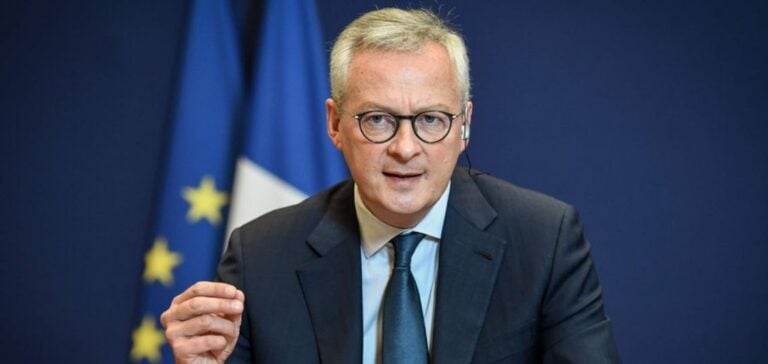At a meeting in Meudon with German economic minister Robert Habeck and Italian economic minister Adolfo Urso, French economy minister Bruno Le Maire introduced the idea of “European preference” for public tenders. This proposal aims to favor European-made products in the face of rising Chinese imports, which he believes threaten the European economy. The European Union recently launched an investigation into possible solar subsidies in China.
Ongoing debate and reluctance
The Minister acknowledged that this proposal remains a subject of intense debate, particularly with Germany, which fears retaliatory measures on its own exports. The debate focuses on the possibility of imposing minimum European content or strict quality and environmental standards in public procurement.
Economic impact and strategic vision
Bruno Le Maire emphasized the urgent need to strengthen Europe’s economic capacities in key areas such as photovoltaic panels, electric vehicles and batteries. He argued that Europe must become more competitive and less dependent on economic giants such as China and the United States.
Proposals for regulatory improvement
In addition to European preference, discussions also focused on the simplification of European standards and rules, with proposals such as the omnibus directive to eliminate standards deemed unnecessary. The three countries, which account for more than half of the EU’s GDP, are also considering raising the employee threshold for the application of certain standards, and harmonizing joint purchasing of essential raw materials such as nickel.
Bruno Le Maire’s proposal to create a “European preference” in public procurement is a sign of Europe’s commitment to strengthening its economic autonomy and protecting its industries in the face of growing international competition. This initiative, although still under discussion, underlines the importance of European unity and cooperation in a complex global economic context.






















